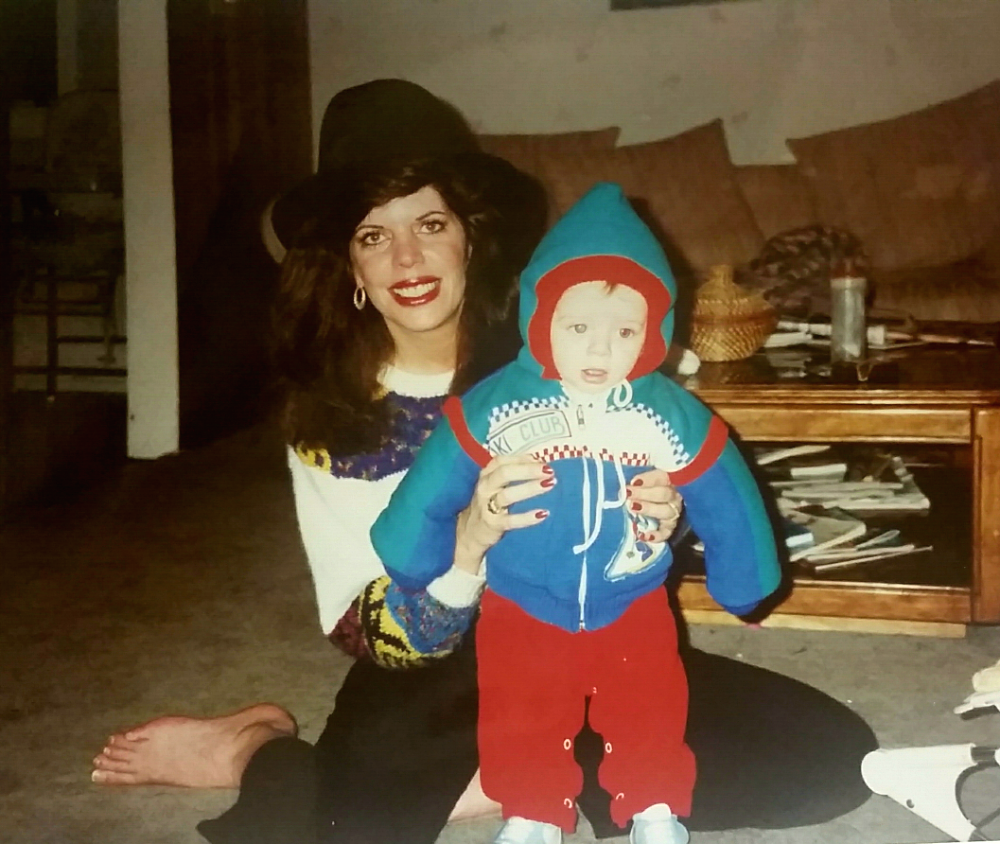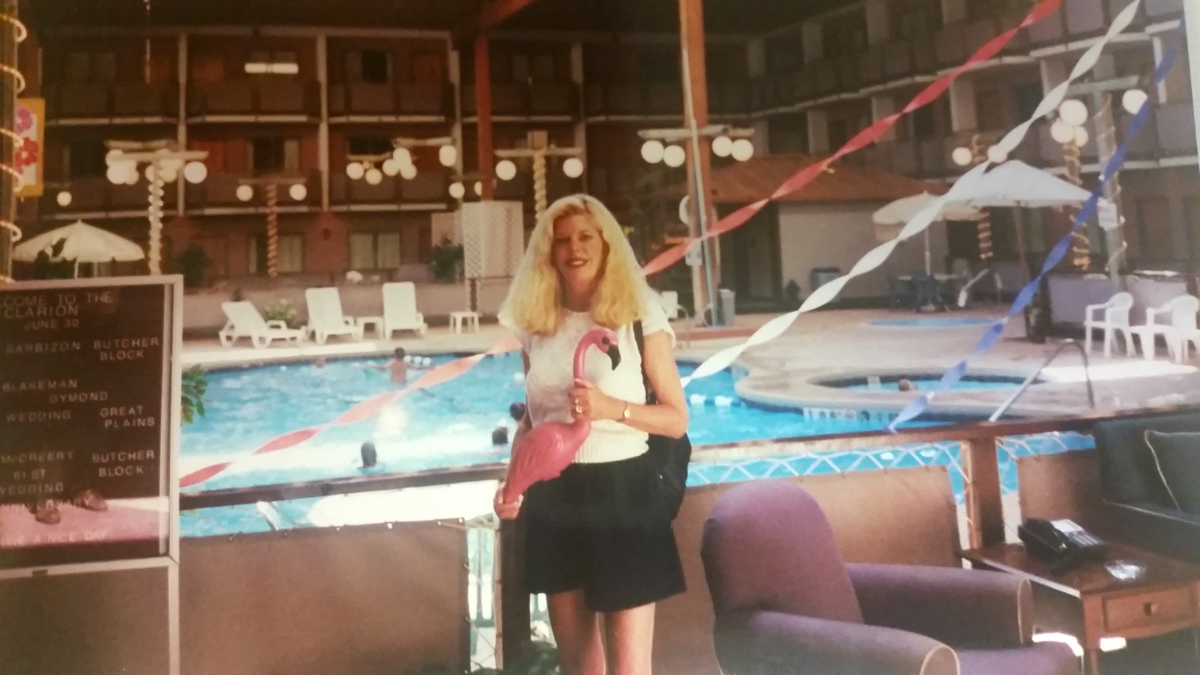Losing Control After Losing a Parent

By:
In 2010, I received a text from my sister while I was working at a swank coffee shop in Santa Barbara, California. "Mom's really sick," I think it read. I took a break, cigarette lit, and called her to get details. She told me our mother, who had been dealing with health issues for years, wasn't doing well. I asked if I needed to come home to Maine, and she said she wasn't sure yet.
Perhaps a week later my sister called and said it's time to come home. My brother paid for my plane ticket, as I didn't have much money to my name, and I went back to the cold, desolate forests of Maine. I was picked up at the airport by a cheery high school friend and went straight to my parent's rental home in a small town called Brunswick. Upon arriving my sister and father were waiting outside. "She's gone, buddy," my father said. I hugged my sister and him, without tears, and said "okay."
My sister and father went to the grocery store to get dinner supplies, and I grabbed my MP3 player and put on the band Beirut. I listened to some sad songs and tried to cry under a willow tree (however cliché that sounds), but no tears came. My sister laid next to me when she got back and grabbed one of my earphones to listen with me. "This is pretty," she said. We laid in consternation.
My mother died from alcoholism when I was 20 years old. My father, who is also a drinker, might tell a different story. He tends to blame the doctors, but the kids know it was toxic doses of vodka. My mother had taken a year off drinking when she was told by her doctor that it was killing her, but then she went back to the bottle. She eventually fell in. Her liver probably failed while I was on the plane.
My mother was an unconventional person. Ideas that came her way seemed to go through a filter not familiar to most people. This was evident in how she constantly responded to questions with answers no one was expecting. If someone called and asked how the day was on a rainy day, she'd be more likely to say "gorgeous" than "gloomy."
My mother was a powerful force. She led us around the country, always getting the itch to move every couple years. She was Wiccan and taught me about energy and casting spells as a kid. I don't really buy into that stuff much anymore, but it gave me an appreciation for unusual ways of thinking.
I remember one day my mother was walking with me to Sears and a woman stumbled while she was stepping off a curb. "STOP DRINKING!!!" my mother yelled, which was followed by an intense belly laugh. The woman cowered in horror. My mother was a joker and a misfit. She could floor people with a glance. When we moved from Washington state to Maine in our SUV, she took a picture holding a plastic pink flamingo in every major destination.
 Thor Benson
Thor Benson
Just as her unconventional life shaped me, her death rattled me in ways I didn't yet recognize. On the plane home, I tried to dive into the depths of what I was feeling, but it felt like I was watching some kind of foreign film I didn't understand at all.
After her death, I went back to Santa Barbara and tried to get back into the swing of things. I tried to ignore the concerned looks on people's faces and the trite condolences. I was attending college — about a year and a half in — and I wasn't very interested in it. I hated that all of my peers seemed to just be there to get a piece of paper that says they did it, without actually caring about the education. I eventually decided to move to Puerto Rico with a high school friend whose family lived there, six months after my mother passed. I dropped out and hopped on a plane.
A couple months into my time in Puerto Rico I started to feel like I was losing balance. I would be walking up the brick street to the boutique hotel where I worked and the ground would seem to tilt as I walked — like Jesus trying to walk on a wave pool.
Later, I started having random bloody noses when no one was around. I was dating a girl from the island who had anxiety problems, but I didn't think that was my problem. Once, while I was staying at her apartment, I started coughing up blood. The night the coughing started, it was too late to go to the local clinic, and we couldn't find anyone to take me to the hospital. She called friends frantically. I thought I might choke on my blood in my sleep, but I didn't have many options. We decided to wait.
We went into the clinic in her neighborhood in the morning and sat down next to destitute young people and parents. My girlfriend kept her hand on my leg while we waited. My Spanish wasn't very good, so she had to act as the translator. Eventually we saw a female doctor who said I had waited too long, and she was concerned. They did a slew of tests and said nothing had come up, when I called a few days later. They gave me antibiotics for a possible infection. When I went back to the clinic, the docotor asked how my family life was, and it started to make sense.
And it continued to clarify: The hotel I worked at was run by an eccentric older man from Georgia, who was training to be a nurse. I talked to him about my issues, and I finally told him that my mother had recently passed.
"There it is," he said. "You have really bad anxiety over this. The fact it took you this long to bring it up shows you haven't dealt with it properly." His father had died when he was young. He told me to find a safe place to cry about my mother's passing and to work on dealing with the loss.
I don't cry easily, but I eventually managed to squeeze out a few tears in my girlfriend's apartment one morning after she went to work. It wasn't much, but it was something. She also helped me understand how you cope with and manage anxiety problems, as I knew very little about it. I tried and typically failed to meditate regularly. I taught myself to control my thought patterns a bit better and to try and talk about my problems with friends. The bloody noses stopped eventually, but the vertigo, which made the world topsy-turvy, stuck around for a long time.
When my mother died, my sister said, I reacted as if someone told me they were out of potato chips. I was in shock and couldn't process the information. I had been very close with my mother, and I hadn't dealt with much death in my life, besides my grandparents.
 Thor Benson
Thor Benson
Losing a parent at the tender age of 20 tips the scales so drastically that it can be very difficult to level out again. It's easy to stay slanted. I still have certain anxiety issues, but I've learned to live with my demons. I think a complicated person like my mother also had her demons, and I think she set the world on fire anyway.
